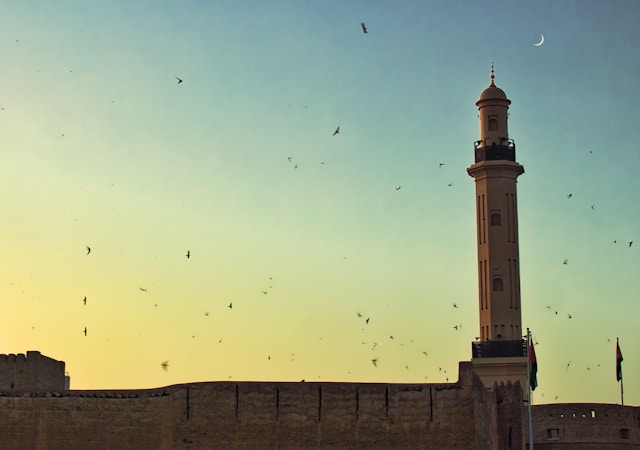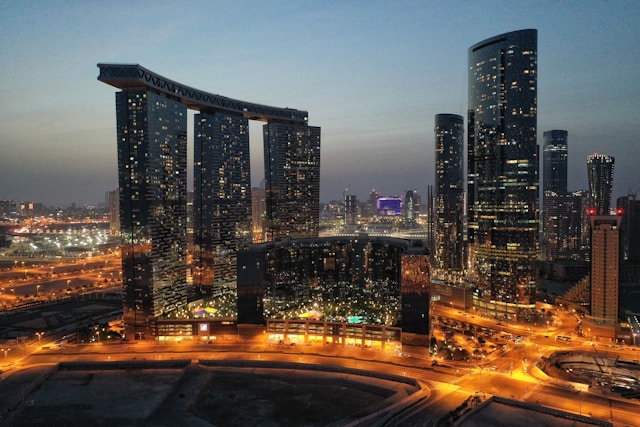As an expat living in the UAE, I’ve experienced firsthand the changes that come with the holy month of Ramadan.
It’s a time of reflection, prayer, and community, but it also brings about changes in daily routines, including parking timings.
This article aims to provide a comprehensive guide to understanding these changes, particularly focusing on the “Ramadan Parking Time.”

Understanding Parking Timings During Ramadan
A. Regular vs Ramadan Parking Times
In the UAE, parking timings are adjusted during Ramadan to accommodate the altered daily routines. Typically, paid parking zones in Dubai are divided into two periods: 8:00 AM to 6:00 PM and 8:00 PM to 12:00 midnight.
However, during Ramadan, these timings change. The morning period remains the same, but the evening period starts later, usually around 7:00 PM, to allow people to break their fast and perform evening prayers.
B. Variations Across Zones and Emirates
It’s important to note that these timings can vary slightly depending on the specific parking zone and the emirate.
For instance, in some residential areas, free parking might be extended during Iftar time. Always check the signage at the parking zone to confirm the timings.
C. The Rationale Behind the Changes
The changes in parking timings during Ramadan are designed to respect the holy month and make life easier for those observing the fast.
By pushing back the evening paid parking period, it allows people to return home for Iftar without worrying about parking fees.
Read: Ajman Parking Timing
Paid vs Free Parking During Ramadan
A. Ramadan Paid Parking
During Ramadan, paid parking in the UAE typically operates in two periods: from 8:00 AM to 6:00 PM, and then from 7:00 PM to 12:00 midnight.
This means that you’ll need to pay for parking during these times. The rates can vary depending on the specific parking zone, so it’s always a good idea to check the signage. In some areas, the rates might be reduced during Ramadan as a gesture of goodwill.
It’s always a good idea to check the signage at the parking zone for the most accurate information.
B. Free Parking during Ramadan
There are certain times during Ramadan when parking is free. In Dubai, for example, parking is generally free between 6:00 PM and 7:00 PM, giving people enough time to get home for Iftar. Additionally,
Fridays are usually free parking days in most emirates. On public holidays, which occur frequently during Ramadan, parking is also often free.
C. TECOM Parking Zone and Multi-storey Parking
In areas like the TECOM Parking Zone and multi-storey parking facilities, different rules may apply. Some of these areas may have their own specific parking timings and fees, which could differ from the general rules.
For instance, in TECOM, parking might be free during Iftar time, but paid at other times. In multi-storey parking facilities, the rules can vary widely.
Some might offer free parking for a certain number of hours, while others might have flat rates. It’s crucial to check the signs or ask a parking attendant if you’re unsure.
D. Understanding the Parking System
The parking system in the UAE is quite organized and efficient. It’s designed to manage the high volume of vehicles and ensure that everyone has a fair chance of finding a parking spot.
During Ramadan, the authorities make an effort to accommodate the needs of those observing the fast, which is why the parking timings are adjusted.
By understanding these changes, you can plan your day better and avoid any parking fines.
Parking Timings in Different Emirates
1. Dubai Ramadan Parking Time
In Dubai, the Roads and Transport Authority (RTA) usually adjusts the paid parking timings during Ramadan. The paid parking zones are typically operational from 8:00 AM to 6:00 PM and then from 7:00 PM to 12:00 midnight.
However, these timings can vary depending on the specific parking zone. For instance, in Tecom-regulated zones, the timings remain the same with fees applicable from 8:00 AM to 6:00 PM. Multi-level car parking lots operate 24 hours.
2. Abu Dhabi Ramadhan Parking Time

In Abu Dhabi, the Department of Municipalities and Transport also adjusts the parking timings for Ramadan.
The specifics can vary from year to year, so it’s always a good idea to check the official announcements or the signage at the parking zone.
According to the most recent data available, the paid parking hours in Abu Dhabi during Ramadan are from 8:00 AM to midnight from Saturday to Thursday. Parking is free on Sundays.
3. Sharjah Ramadan Parking Time
Sharjah also has specific parking timings for Ramadan. The municipality’s director-general, Obaid Saeed Al Tunaiji, announced that paid parking hours will be 8:00 AM to 12:00 AM (midnight) from Saturday to Thursday.
Parking is free on Fridays, except in zones that have blue information signs.
Read: Sharjah Parking Timing
4. Unique Rules or Exceptions
Each emirate might have unique rules or exceptions, especially for areas like malls, hospitals, and residential zones.
It’s crucial to check the local regulations or signage for the most accurate and up-to-date information.
Navigating Parking During Ramadan
Practical Tips for Drivers
As a driver in the UAE during Ramadan, it’s important to be aware of the changes in parking timings and plan your day accordingly. Here are some practical tips:
- Always check the signage at the parking zone for the most accurate timings and rates.
- Try to avoid peak hours when parking spaces might be crowded.
- Use mobile apps or online services provided by the RTA or the Department of Municipalities and Transport to pay for parking and avoid fines.
- Be respectful of others and follow the parking rules.
Avoiding Common Mistakes and Penalties
One common mistake is to assume that parking is free all day during Ramadan. While there are periods of free parking, fees are still applicable during certain hours.
Another mistake is not checking the specific timings for each parking zone, as they can vary. Penalties for parking violations can be hefty, so it’s best to stay informed and follow the rules.
Conclusion
Understanding the changes in parking timings during Ramadan is crucial for anyone living in or visiting the UAE. It helps you plan your day, avoid fines, and respect the observances of this holy month.
Remember, each emirate might have slightly different rules, so always check the local regulations or signage. And most importantly, Ramadan is a time of reflection and community, so let’s embrace these changes and the spirit of this month.